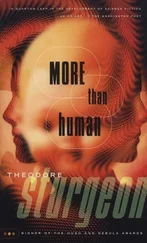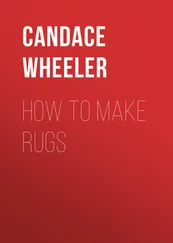“What do you mean?”
“Mrs. Keen’s gutters, for example. When you cleaned them, you kicked loose some shingles. She then had a leaky roof.”
“Is that true? I can fix it next—”
Frank held up a meaty finger. “The lift chair you found for Mr. Hanson, it had a short circuit, almost started a fire. When you cleared those boxes out of the Sedlak basement, did you notice black mold? That stuff is toxic. Had it been sucked into the ventilation they’d of been goners.”
My chest felt heavy. All I could manage to say was, “Jeez.”
“There’s more.” Frank held up a stack of bound pages. “But I’ll spare you the details. We both know why you’re here.”
“Jimmy Motts.”
“That’s right. Jimmy Motts.”
“Did he tell you that he rammed my chest with his forehead?”
“He told me that you provoked him, that—”
“C’mon, Frank. You don’t believe that bullshit, do you?”
“I don’t have to. Your record speaks for itself.”
“But there’s the woman whose garden I fixed. She’ll vouch for me.”
“Jill’s dead,” Frank replied. “She passed last week.”
I recalled the visage of that now-dead woman, and I questioned myself again.
“Was Motts the auditor on these jobs?”
“Now, don’t start that woe-is-me shit. You knew the rules when you started. With your background, the one thing you absolutely couldn’t do was confront a client.” Frank leaned forward, set his jaw in his hands. “Not everyone we help is a kind-hearted old lady. Sometimes they’re crazy. Sometimes they’re maniacs who probably deserve to get hit. I know that. But it’s our job to help them all. Each and every one of them. We don’t get to pick, okay? How we come to meet these people, how they come to my office, it’s beyond me. But that’s the point, isn’t it? It’s not up to us.”
Frank stood and walked to the door. As he opened it I could hear the receptionist arguing with someone on the phone.
“We love your effort,” Frank said, holding out his hand. “But I can’t give you any more jobs. Not after all this.” He whispered this last part, pointing toward the folder. “It would be a PR disaster. You’ve worked in corporate. You can understand that.”
No one likes to be fired, particularly from a volunteer position, but as I left Frank’s office that day a sense of relief flickered within me. Honestly, it was a little disarming to work in the daylight, to be welcomed into someone’s home. People let me play catch with their children. I was handed a baby girl once, despite my protestations, embarrassed that I didn’t know how to hold her. It seemed like a mistake when a woman wanted to hug me after I raked her leaves, when her children smiled shyly to reveal lost teeth, saying, “Thanky, Mister James.”
This wasn’t part of the world I knew. Even if these people accepted me, it didn’t mean I belonged there, defrosting their refrigerators.
They said I was a model citizen, some of them. Don’t get me wrong, I knew how full of shit they were. I was still working with Make Things Right at night, of course. I had to get paid somehow. The people I helped with CAP didn’t know how I’d shattered over a hundred windshields, slashed sixty sets of tires, scarred the bark of hundred-year-old family oak trees, stuck cockle burrs in people’s tube socks, set free beloved family pets, and planted child pornography on an elementary school teacher’s home computer — or that this chicanery had paid my bills and taxes. I wondered what they would think of me if they found out.
In many ways the incident that led to my being let go by Citizens Against Poverty was a fortuitous one. It seemed that there were many revolutions to the ups and downs a man must face. No matter what kind of life he’s living, not everything will turn up roses — especially not for a guy who tempts fate like Jimmy Motts.
The fact that we’re at his house now is a case in point. Some people won’t believe this is a coincidence. Maybe you’re one of those people. For you, this is just a simple training exercise, but it means a lot more to me. The universe offers second chances to those open to receiving them. I know this.
Believe me, I don’t hold a grudge against Motts. I’m a professional — there’s no need to recuse myself. He flipped off an old woman in traffic, defamed God in front of her grandkids. That’s why we’re here. We’ll wait as long as it takes, even if Motts is up most of the night, lingering in one room or another, snacking in the kitchen, brushing his teeth. When the lights are doused we’ll be ready.
Maybe it’s true what Frank said about the Furies being a self-reflexive phenomenon — that to invoke their powers is to curse yourself — but I don’t care anymore. It’s who I am.
We may not be able to meddle in fate, of this I’m fairly certain — but it’s also true that we can’t pick our talents. This is the difference between a job and a vocation. Some people just go to work and wait it out till payday. But some of us, people like me, we’d do this stuff for free.
He introduced himself to Carrie Rehbein at a karaoke bar by the freeway. She was from Ashland and had come to Omaha that day to go shopping with her sisters. She had green eyes and red hair, wore a tight yellow tee shirt under her coat and two small gold necklaces around her neck. Her engagement had been broken off the month before, just after Thanksgiving, her sisters said.
It was obvious her sisters were the ones who really wanted Carrie to go home with Aaron. All of them drank tumblers of white wine.
The sisters sang raunchy lyrics they’d improvised over karaoke versions of Mariah Carey and Shania Twain, until the DJ refused to let them go on again. They got Carrie too drunk to drive home and made Aaron promise he’d take care of her.
Carrie was nervous to be alone with him, once they were in her car. She turned and looked out the window, watching for her sisters as he drove her away.
It’s because he has a train to catch that Rodney leaves his room after suppertime. He puts on dress shoes and his green suit, the one that looks good against his skin. Earlier that afternoon, the big woman next door trimmed his hair. He lives in the Kellogg Rooming House, an old brick building near downtown. It’s a fifteen-block walk to the train station from his room and he wants to arrive early. It’s a nice evening, the lights of the big buildings downtown popping on. Rodney heads south to Leavenworth. He knows a few people on the street here but doesn’t stop to talk. He doesn’t even care when the boys he knows laugh at him for wearing a suit.
A pair of granite buildings sit on the Tenth Street hilltop. Each of them used to be central stations for rail lines at one time, but the one that’s bright and clean is a museum now and the other sits empty, its exterior smog-gray and mossy-green, The Burlington Station etched at its top. The Amtrak station is a small brick building nestled in a depression behind these old giants. Rodney’s headed for Hastings, a town some hundred-fifty miles away. It will be two in the morning when he arrives. He’d have rented a car if he had a driver’s license and a credit card, but he doesn’t have these things. It’s either the train or a bus for a man with only paper ID and a clip of small bills, and you won’t catch Rodney riding a bus.
He’ll spend as little time as possible in Hastings — his mother’s died there, that’s the reason he’s going — and then he’ll take the train coming home to Omaha.
When Rodney wakes up he’s slumped cockeyed in his seat, leaning against a young man who plunked next to him at the stop in Lincoln. It takes Rodney a moment to realize where he’s at, to lift his head off that shoulder and straighten, to remember he’s on a train in the middle of nowhere, in the middle of the night. “Good morning,” the young man says. Rodney doesn’t respond. He merely rubs his face and looks out the window. The young man smiles, he laughs softly. “Have you come a long way?” he asks.
Читать дальше












